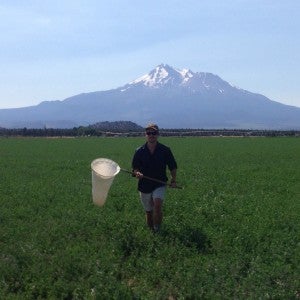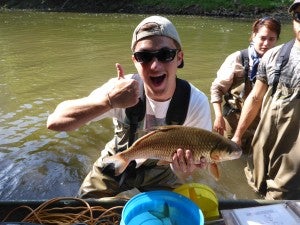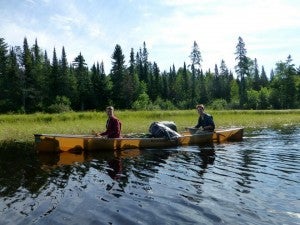I’m a third-year PhD candidate in the Graduate Group in Ecology, co-advised by Sebastian Schreiber. I hail from the frigid land of Minnesota, where I was born, raised by a pack of wolves, and graduated from St. John’s University. I am studying the effects of pathogen/parasite virulence and behavioral modification on host populations, specifically in Geocoris pallens.
Contact me:
Email: mjculshawmaurer (at) ucdavis (dot) edu
Twitter: @MCulshawMaurer
Carrier pigeon: no guarantee of delivery
If you’re into looking at CVs, here’s mine: KAPOW!

Catching some G. pallens near Mt. Shasta.
I am new to the world of entomology, coming from a general ecology and environmental science background. I’ve worked on maple sap production, shallow lake limnology, fish habitats in streams, river geomorphology, and Daphnia ecophysiology. I am broadly interested in how non-consumptive effects and phenotypic shifts can cause cascading effects through communities and ecosystems.
I am currently working on several projects: investigating a novel pathogen in Geocoris pallens, which induces a high-cannibalism phenotype in its host. I am interested in how virulent effects such as reduced fecundity and survival compare to the behavioral shift towards high cannibalism, with respect to overall population dynamics.
I am also working on a project modeling the evolution of manipulative parasites and the effects of manipulation on community dynamics with Sam Fleischer, an Applied Math PhD student also in the Schreiber lab. We are using a differential equations model for a trophically-transmitted parasitic life cycle.
I am also interested in the importance of non-consumptive effects and trait-mediated indirect effects in biological control. Non-consumptive or “risk” effects can be quantitatively significant when compared to consumptive effects, but can differ in their spatial and temporal scales, and in their response to environmental factors.

